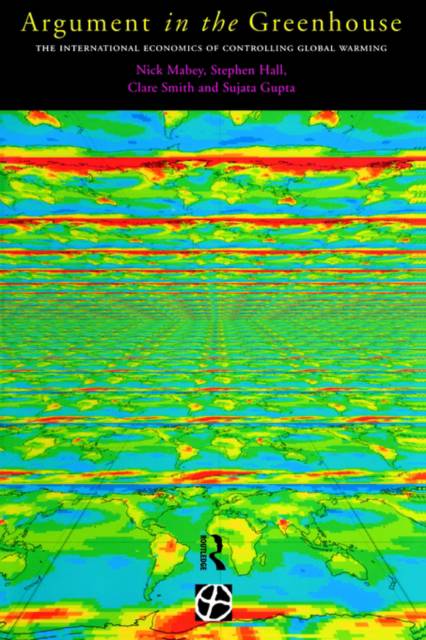
- Afhalen na 1 uur in een winkel met voorraad
- Gratis thuislevering in België vanaf € 30
- Ruim aanbod met 7 miljoen producten
- Afhalen na 1 uur in een winkel met voorraad
- Gratis thuislevering in België vanaf € 30
- Ruim aanbod met 7 miljoen producten
Zoeken
Argument in the Greenhouse
The International Economics of Controlling Global Warming
Sujata Gupta, Stephen Hall, Nick Mabey, Clare Smith
€ 70,45
+ 140 punten
Omschrijving
How can greenhouse gases be controlled and reduced? Will it be in time? This book adds a significant new contribution to the crucial climate change/global warming debate. Incorporating the key political and legal considerations into `real world' applied economic analysis, the authors provide a unique focus on the wider political economy of the problem. All the key issues of controlling climate change (costs, timing and degree of stabilisation, ecological taxt reform, developing countries, and evolution of international agreements), are placed firmly within the current legal and political context, with state-of-the-art economic techniques introduced to analyse different policy proposals. Covering both the developing and developed world, this book identifies important new policies to foster effective agreements on eissions and prevent global warming - realistic policies, likely to receive support at both international and domestic levels. be in time? This book adds a significant new contribution to the crucial climate change/global warming debate. Incorporating the key political and legal considerations into 'real world' applied economic analysis, the book's authors provide a unique focus on the wider political economy of the problem. All the key issues of controlling climate change (costs, timing and degree of stabilisation, ecological tax reform, developing countries and evolution of international agreements), are placed firmly within the current legal and political economy context, with state-of-the-art economic techniques introduced to analyse different policy proposals. Covering both the developing and developed world, this book identifies important new policies to foster effective agreements on emmissions and prevent global warming - realistic policies which are likely to receive support at both international and domestic levels.
Specificaties
Betrokkenen
- Auteur(s):
- Uitgeverij:
Inhoud
- Aantal bladzijden:
- 464
- Taal:
- Engels
- Reeks:
Eigenschappen
- Productcode (EAN):
- 9780415149099
- Verschijningsdatum:
- 13/02/1997
- Uitvoering:
- Paperback
- Formaat:
- Trade paperback (VS)
- Afmetingen:
- 155 mm x 232 mm
- Gewicht:
- 603 g

Alleen bij Standaard Boekhandel
+ 140 punten op je klantenkaart van Standaard Boekhandel
Beoordelingen
We publiceren alleen reviews die voldoen aan de voorwaarden voor reviews. Bekijk onze voorwaarden voor reviews.








